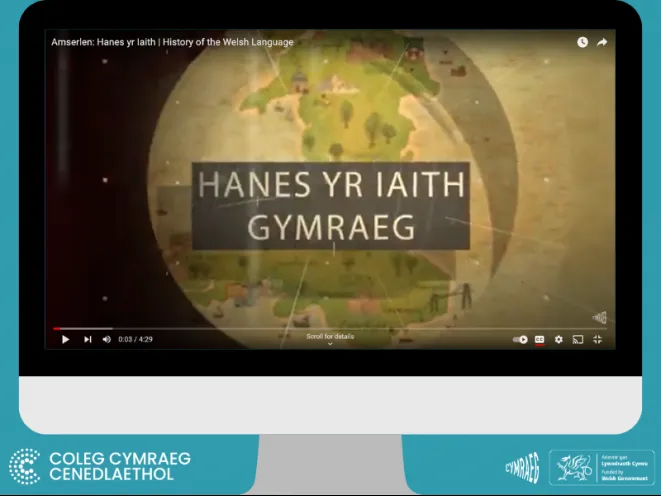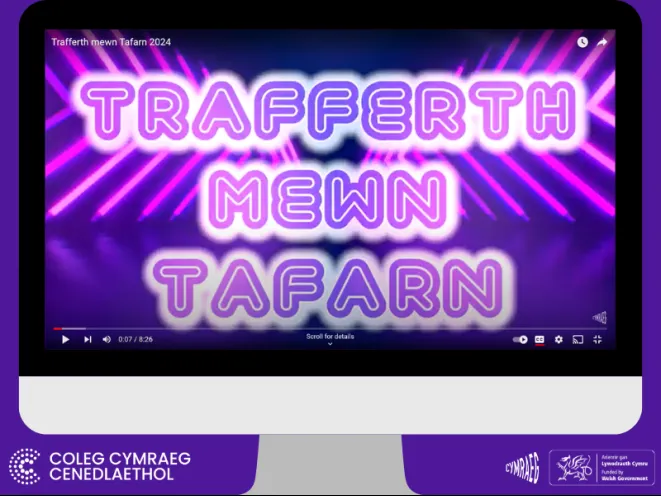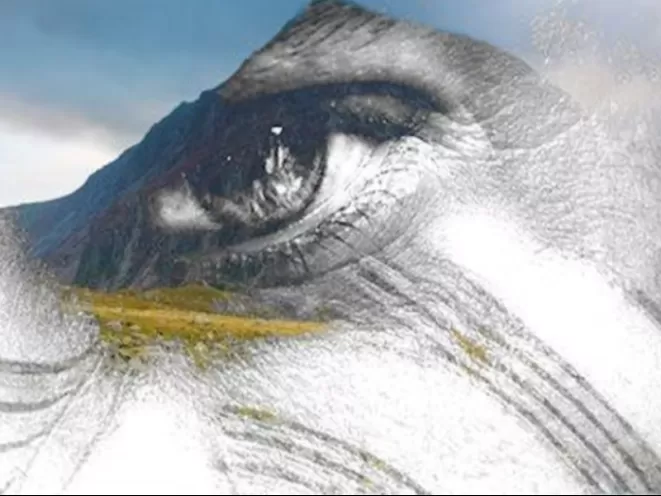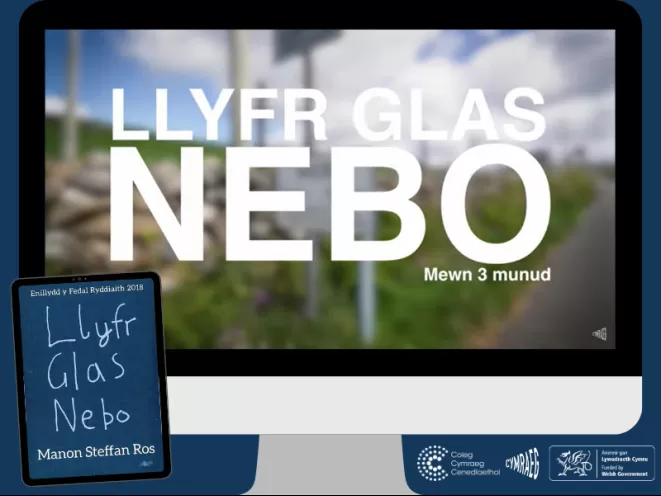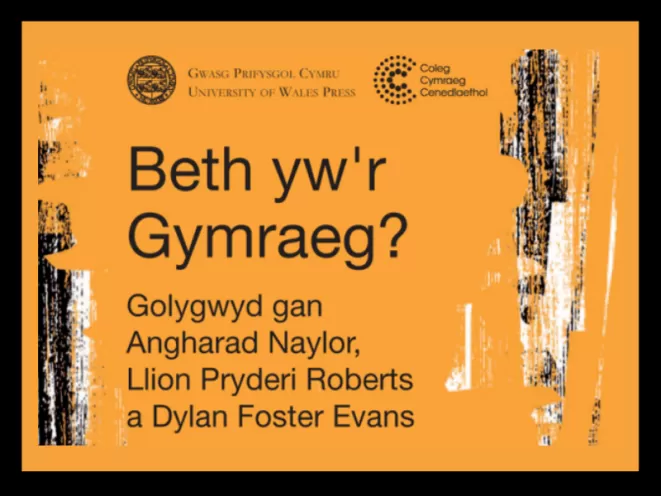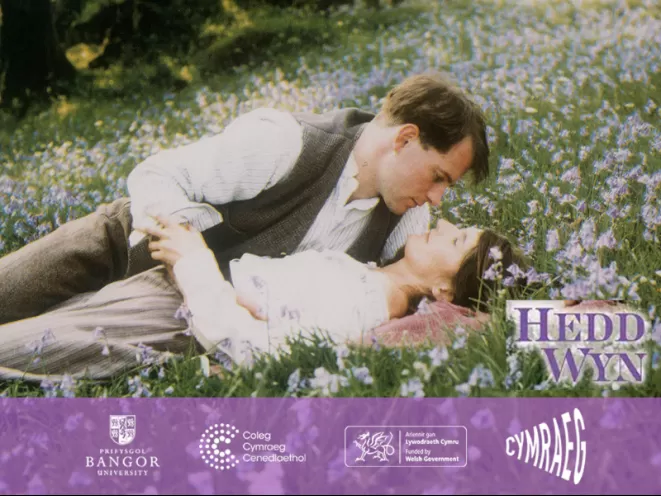A new video resource that brings the history of the Welsh language to life in 4 minutes. From its origins in the Brythonic language and the earliest written versions through the Acts of Union and the Industrial Revolution to the establishment of the Urdd and Welsh-medium schools in the twentieth century, this video goes from the year 40 to 2022, when the language was used for the first time in the biggest sporting stage, the football World Cup. “Today, over half a million speak the language and the Welsh Government wants to have one million Welsh speakers by 2050 so that the Welsh language becomes an integral part of everyday life, in communities, school, at work and in digital technology.” A resource to be used widely with learners of all ages, and specifically for Welsh Second Language A Level Unit 5 (The Welsh Language in Society). Welsh subtitles can be selected on video in YouTube (English subtitles available soon). Funded by Welsh Government.
Video Timeline: History of the Welsh Language
Trafferth mewn Tafarn 2024
A new video resource that gives a contemporary look at Dafydd ap Gwilym’s famous cywydd, as studied in A Level Welsh Unit 5 (Medieval Prose and Early and Medieval Poetry). The video focus on 4 parts of the text to tell the story, detailing the content in today’s language and focusing on the poet’s style and craft. Script prepared by Dr Eurig Salisbury, lecturer at the Department of Welsh at Aberystwyth University. Welsh subtitles can be selected on video in YouTube. Funded by Welsh Government.
Pūtahitanga Project: Music, Language, and Identity
Pūtahitanga: te reo Māori (in the Māori language) which describes a community coming together to work together on a specific idea, topic or challenge. The word embodies the ethos of the research project that uses it as a title: The Pūtahitanga Project. This is a project that explores popular music, language and identity in the Welsh and Māori contexts. As part of the project, Dr Elen Ifan from Cardiff University received an Innovation Grant from the Coleg Cymraeg Cenedlaethol to hold workshops in Aotearoa (New Zealand) and Wales with musicians who use Māori and Welsh in their work. This resource shares clips from the workshop in Cardiff and includes activities to involve you in our research as well. It is mainly designed for higher education students, but it is also relevant to anyone interested in Welsh popular music and the worksheet is suitable for AS and A level as well. The project essentially aims to find connections between the experiences of musicians who use two minority languages (Welsh and te reo (the language) Māori), trying to understand the various challenges facing these musical communities , but without directly comparing. The project uses creative research methods and involves audiences in the research. This resource forms part of that work. The video files include a presentation by the lead researcher and clips from a workshop held in Cardiff in November 2023. The worksheet guides the person using the resource through the activities, encourages them to engage with the themes of the project, to think about what is relevant or important to them, and invites creative responses to the research.
Llyfr Glas Nebo in 3 minutes
A new video resource that presents and summarizes the main content, themes, and characters of Llyfr Glas Nebo by Manon Steffan Ros, for the GCSE WJEC Welsh Literature Unit 2 course. The video aims to present the novel in a simple and memorable way, encouraging learners to study further. Welsh subtitles can be selected on video in YouTube. Funded by Welsh Government.
Beth yw'r Gymraeg?
An appealing, contemporary volume presenting an accessible introduction to the discipline of the Welsh language, edited by lectures at the School of Welsh, Cardiff University; Dr Angharad Naylor, Dr Llion Pryderi Roberts and Dr Dylan Foster Evans. It presents the richness, breadth and passion of the language as an academic discipline, and will motivate interest and curiosity in familiar and new fields - such as language, literature, language sociology, literary critique, culture and inheritance and creative writing. Online Open Access (link below) Also available to buy as a paperback on the University of Wales Press website or in your local bookshop.
Am Filiwn: Podcast
A podcast that discusses aspects of education that help pupils along the road to becoming Welsh speakers, in the context of the target to reach a million Welsh speakers by 2050. The podcast will appeal to anyone completing a teacher training course, newly qualified teachers, or anyone who’s already part of the education workforce. It’s also likely to be of interest to anyone who wants to know more about the role of the education system in reaching a million Welsh speakers. It is also an excellent resource to support the Welsh Language Competency Framework for Education Practitioners.
Translanguaging Resources
Resources from Dr Alex Lovell, Swansea University to assist with the skill of Translanguaging, which is part of the Welsh Second Language AS/A Level specification (U2 Unit 5, Section B). Resources include: Language Workshop: Translanguaging - video lecture Translanguaging Language Workshop PowerPoint slides Translanguaging worksheet The resources: consider what 'translanguaging' is and what are the benefits? discuss how to write an effective translanguage analyze a good example includes tasks to further practice translanguaging skills Resources created by the Department of Welsh, Swansea University, with funding from the Coleg Cymraeg Cenedlaethol.
Discussion Panel: Yr Hengerdd a Dafydd ap Gwilym
This is a valuable opportunity to hear a panel of experts and familiar faces discuss the early and medieval poetry of Aneirin, Talieisin and Dafydd ap Gwilym. The panel includes Professor Jerry Hunter, Dr Aled Llion Jones, and Professor Peredur Lynch, Bangor University. Specifically suitable for year 13 learners who are studying for their Unit 5 Welsh exam, but of wider interest as well. A session recorded in Pontio, Bangor, during May 2023, in collaboration between Bangor University's Department of Welsh and Pontio. Sponsored by the Coleg Cymraeg Cenedlaethol. Session in Welsh. Looking for more resources? Watch our Ar-lên study sessions available here or here.
Discussion Panel: Branwen
This is a valuable opportunity to hear a panel of experts and familiar faces discuss Branwen, ferch Llŷr. During the session, there will be a discussion on various aspects of the story by experts on medieval prose. The panel includes Professor Jerry Hunter and Dr Aled Llion Jones, Bangor University, and Dr Rhiannon Ifans. Specifically suitable for year 13 learners who are studying for their Unit 5 Welsh exam, but of wider interest as well. A session recorded in Pontio, Bangor, during April 2023, in collaboration between Bangor University's Department of Welsh and Pontio. Sponsored by the Coleg Cymraeg Cenedlaethol. Session in Welsh. Looking for more resources on Branwen? Watch our Ar-lên study sessions available here.
Discussion Panel: Hedd Wyn
This is a valuable opportunity to hear a panel of experts and familiar faces discuss the award-winning film, Hedd Wyn, scripted by Alan Llwyd and directed by Paul Turner. During the session, there will be a discussion on various aspects of the film including the historical and industrial context, themes, the characters and the use of symbolism in the film. The importance of the film in Wales and internationally will also be discussed. The panel includes Dr Manon Wyn Williams and Professor Gerwyn Wiliams, Bangor University, actor Huw Garmon and Noami Jones, Head of Cultural Heritage at yr Ysgwrn. Specifically suitable for year 12 pupils who are studying the film for the AS Welsh (Unit 1) oral exam, but of wider interest as well. A session recorded in Pontio, Bangor, during March 2023, in collaboration between Bangor University's Department of Welsh and Pontio. Sponsored by the Coleg Cymraeg Cenedlaethol. Session in Welsh. Looking for more resources on Hedd Wyn? Watch our Ar-lên study session available here.
Choose Lefel A Cymraeg: Campaign and resources
Choose Lefel A Cymraeg is a Welsh Government funded campaign that aims to encourage more young learners to study Welsh A-Level by providing promotional assets to raise awareness around the endless benefits the language has on your academic, cultural and working life. The campaign, launched by Coleg Cymraeg Cenedlaethol and Welsh Government, includes content that can be used by teachers and schools to engage learners, parents and carers in the Welsh language and A-Level course by: Highlighting that Welsh A-Level opens doors to a wealth of university pathways Emphasising the variety of careers and industries where Welsh is a highly-valued skill Giving an insight into the breadth and variety of the Welsh A-Level curriculum Showcasing Welsh A-Level as a modern, creative and relevant subject Inviting learners to join a thriving community of Welsh speakers that are passionate about their culture, heritage and the Welsh language Resources include: Visual content: instazines, profile cards, quotes, Q+A cards, search-it posts Videos Posters Social media assets (GIFs) School toolkit The resources can be used and shared digitally or in print, on social media or by incorporating them into presentations and prospectuses. All content is available bilingually for download via the Dropbox link below. For more information on the campaign or about Welsh as a subject, please contact Dr Ffion Eluned Owen, Welsh as a Subject Promotion Officer at the Coleg: ff.owen@colegcymraeg.ac.uk.
The Poetry of the Nobility Series
This is a Welsh-language resource presenting standard editions of the poetry composed by Welsh poets between 1282 and the middle of the sixteenth century. This collection is aimed at anyone who wants to learn more about Medieval Welsh poetry – University students and researchers, and also anyone who wants to learn more about the history of our bardic tradition, or about the history of some particular area long ago. If you want to learn more about one poet in particular, one could start by reading the Preamble to his work, before turning to the poems themselves. There is plenty of help in paraphrases and notes to help with the interpretation.

